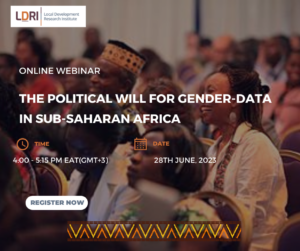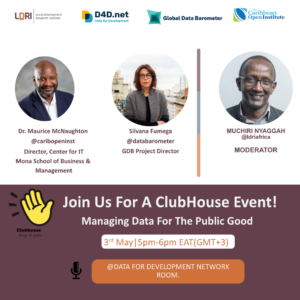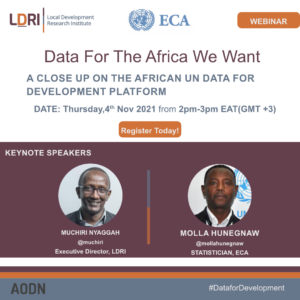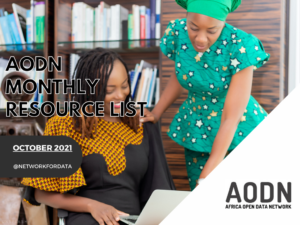![]()
Faces of the GDB 2021 Research in Sub Saharan Africa
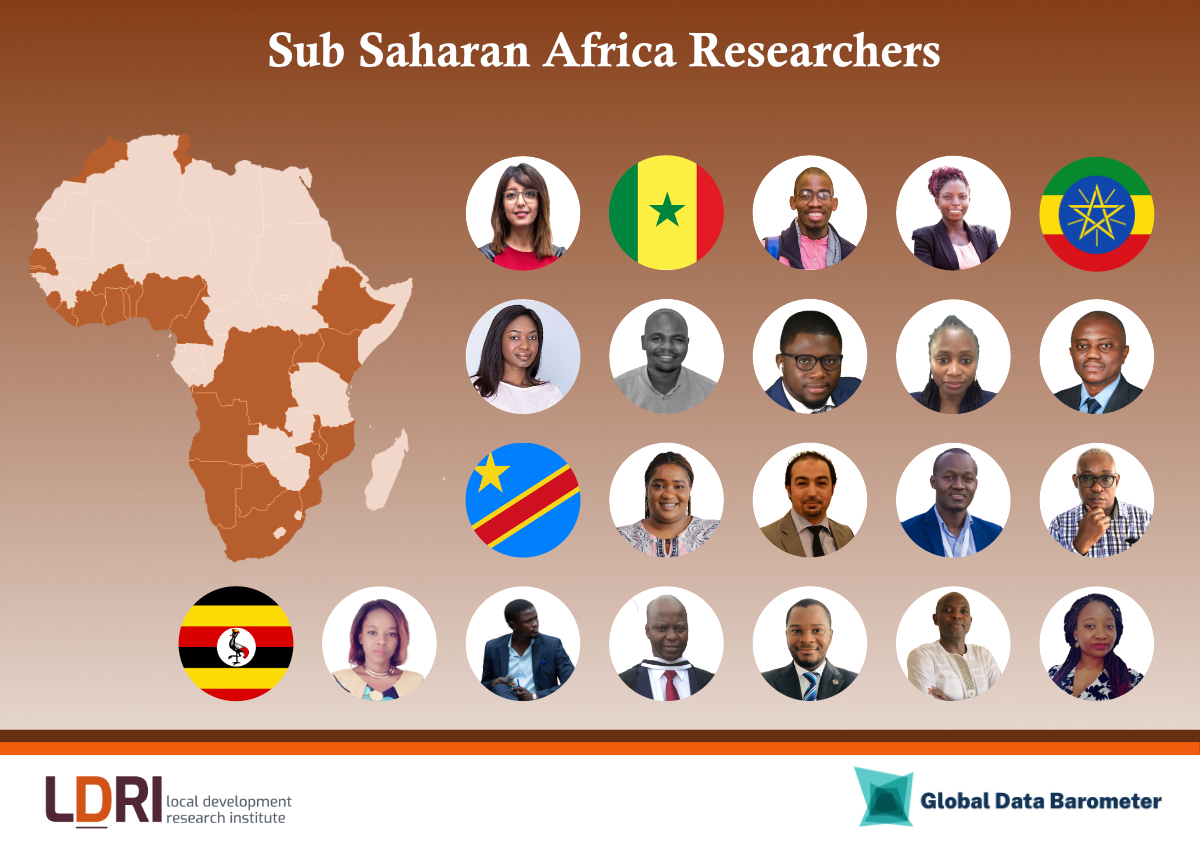
The Global Data Barometer (GDB) is a new global data index that seeks to provide updated, in-depth, country-level insights on data policy and practices across the globe. With data from over 100 countries, the GDB will fill critical knowledge gaps on how data policy and practice are unfolding in different sectors, regions, and countries around the world by providing a flagship global report, an open research-ready dataset, regional and sectoral analysis, and country profiles. These outputs will help add to the understanding of the ongoing data transformation, provide a critical new comparative benchmark on data, contribute to in-depth quantitative and qualitative research on data and support sectoral efforts with actionable insights.
LDRI is Sub-Saharan Africa’s Regional Hub for the Global Data Barometer pilot 2020/21 edition and is responsible for research in Angola, Benin, Botswana, Burkina Faso, Gambia, Côte d’Ivoire, Democratic Republic of Congo, Ethiopia, Ghana, Kenya, Liberia, Malawi, Morocco, Mozambique, Namibia, Nigeria, Rwanda, Senegal, Cameroon, Sierra Leone, South Africa, Togo, Tunisia, and Uganda.
We are collaborating with 23 national researchers and organizations from these countries in this pilot edition of the GDB. These national researchers or organizations are responsible for completing a detailed expert survey that looks at policies, practices, datasets, and research related to the governance, capability, availability, and use of data in their respective countries.
Meet the National Researchers:
- Asma Cherifi, Tunisia
Asma is an Open reform researcher and practitioner. She has a masters degree in Mathematics, Public Policy, and ongoing accreditation from the European MPA in Governance and Management of Public policies. She is a regional expert with the African Governance Architecture (AGA) Secretariat, of the African Union Commission and supports the Open Government Partnership (OGP) steering committee in Tunisia. Asma has more than 13 years of experience in Africa and the MENA region supporting several African Francophone Countries and MENA countries to draft Open Policies, design innovative solutions, and implement open reforms.
- Oarabile Mudongo, Botswana
Oarabile Mudongo is a Research Fellow at Research ICT Africa and a Technology Exchange Fellow with Ford Foundation and Media Democracy Fund. He is currently researching data-driven technologies particularly AI surveillance, automated facial recognition,algorithm-assisted decision-making tools in the AI in Africa Policy (AI4D) project. He is also an MA candidate in Interdisciplinary Digital Knowledge Economic Studies at the University of the Witwatersrand.
- Donatien abel Gbessi Gbala, Côte d’Ivoire
Based in Côte d’Ivoire, Abel Gbala is a Monitoring, Evaluation, and Research consultant involved in various research projects on Democracy, Human Rights, and Governance since 2014. As a Research Assistant, he supported 5 Ph.D. candidates focusing on conflicts and peacebuilding in fragile democracies. As an Evaluation Consultant, he was in charge of the implementation of the M&E plan of the Abidjan Convention for Cooperation in the Protection, Management, and Development of the Marine and Coastal Environment of the Atlantic Coast of West, Central, and Southern African Region.
He holds a BA in Linguistics, a MA in Communication for Development and he is certified in International Humanitarian Law, Project Management, Monitoring, and Evaluation. Abel is planning to apply for a Ph.D. in Political Science.
- Open Data Pour Elles, Cameroon
Open Data Pour Elles is a pan-African not-for-profit association that brings together 43 women from 13 different nationalities from various backgrounds in a bid to mainstream the concept of open data for young women, promote the use of open data to support different areas of development and gender empowerment and reduce the digital divide in French-speaking Africa.
Researcher Miléva Duchel Zapfack from Open Data Pour Elles combines her Ph.D. studies in Governance and Public Policies with research work in development-related topics. Her Ph.D. thesis focuses on Norm Diffusion Processes in Cameroon’s Extractive Sector. This study focuses on the domestication of Transparency-Accountability-Participation (TAP) norms, with a comparative outlook with two West African countries: Ghana and Senegal. She also holds a B.Sc in Journalism and Mass Communication and an M.Sc in International Relations.
- Seember Nyager, Nigeria
Seember is an Open Government advocate who successfully led the adoption of open contracting standards by the Nigerian government, using a platform called Budeshi to demonstrate the utility of contracting data enabled by new technologies.
Seember has worked with many organizations in Sub-Saharan Africa and globally on the intersections of media, law, and technology. Lately, she has been particularly interested in exploring the role (if any) of the private sector in making access to publicly held information a global norm.
- Nashilongo Gervasius, Namibia
Nashilongo is a Managing Consultant at NamTshuwe Digital, where she leads programmes and research in Technology policy, Media, and development. She has experience in designing and implementing as well as monitoring social projects and training. She is a Media and Communication Lecturer at the University of Namibia on a part-time basis. She is the founder of the Internet Society Namibia Chapter and a founding member of the Namibia National Working Group on the Internet Governance Forum. She has over 13 years of experience in the media and communication field. Nashilongo holds a Masters in ICT and the Knowledge Society, A Post Graduate Diploma in African Leadership and the Knowledge Society as well as an Honours Degree in Journalism and Communication Technology. She is currently a Masters of Science awardee in Global Media and Communication student at the London School of Economics and Politics.
- Dércio Tsandzana, Mozambique and Angola
Dércio is a Mozambican P.h.D. student in Political Science (Sciences Po Bordeaux, France). He holds a Masters of Arts in Political Science at the same University and has more than five years of experience working on youth, Internet, social media, and political participation in Mozambique, including online activism for Global Voices International. His Ph.D. research examines the role of social media in youth political participation in Mozambique.
Alongside his Ph.D., Tsandzana has worked on focusing on youth political participation, digital rights, and data privacy with the Electoral Institute for Sustainable Democracy in Africa (EISA), the Collaboration on International ICT Policy for East and Southern Africa (CIPESA), and the African Declaration on Internet Rights and Freedoms.
- Poncelet O. Ileleji, Gambia
Poncelet O. Ileleji is a Computer Scientist by profession with 25 years in the field. He has been involved with the use of ICT as a tool for sustainable development both as the Lead / CEO of Jokkolabs Banjul, in The Gambia. He has also served as a consultant for several projects in Africa covering ICT for Development, Learning, Technologies and Education, Internet Governance and Health Informatics. He leads organizations partnership with the Global Partnership for Sustainable Development Data and is a Board member of the San Francisco, USA-based Technology not-for-profit Net Freedom Pioneers.
- Mobile Web Ghana, Ghana
Mobile Web Ghana is a technology and entrepreneurship hub that is dedicated to empowering the youth, women and government agencies to use mobile, web applications and open data solutions to solve local problems. Mobile Web Ghana undertakes “ICT for development” projects that are aimed at improving social-economic and political development with particular emphasis on helping the marginalized in society.
Researcher Florence Toffa is the director of Mobile Web Ghana and has over 8 years of experience in the ICT4D sector. She is an advocate for solving local problems through civic engagement, capacity building, and new technology, and has led projects such as Females in Mobile Entrepreneurship, visuals for gender, and Africa Digital Skills Conference, TaWEP - Technology and Women Empowerment Program, open cities Accra and the ecosystem specialist for Ghana Open Data project. Florence is also a 2016 Mandela Washington Fellow and a 2015 Vital Voices Fellow.
- Emmanuel Agbenonwossi, Togo
Emmanuel Agbenonwossi is an Internet Governance Expert and Independent Researcher. He is currently the Executive Director of Afrotribune, a digital rights non-for-profit organization in Togo.
Emmanuel supports multi-stakeholder Internet governance processes in Africa by providing technical support to the West Africa Internet governance as a chairperson of the steering committee, as well as a number of National and Regional Initiatives (NRIs), and Schools of Internet Governance (SIGs) as a faculty member. Emmanuel is the chairperson of the Togo Internet Governance Forum and the national expert of the AU Policy and Regulation Initiative for Digital Africa (PRIDA) project. Emmanuel is a graduate of the University of Greenwich (London), Central University (Tunisia), University of Malta, and the IAEC University (Togo).
- Lamii Kpargoi, Liberia
Lamii Kpargoi is a Liberian lawyer who specializes in labor and migrant matters. He has worked for many years in the Liberian civil society and authored the Liberian Chapter of the Media Sustainability Index between 2008 and 2012. Kpargoi is very passionate about human rights. He is a 2015/16 Reagan-Fascell Democracy Fellow and a 2019/20 Chevening Scholar.
- Amessinou Kossi, Benin
Dr. Amessinou Kossi is a teacher and researcher in information and communication sciences. He holds a doctorate in information and communication sciences. He also holds an International Masters in Development Studies and a Professional Master in Design and Management of Digital Projects. He teaches in several specialized institutes of the University of Abomey-Calavi. Dr. Kossi is also a member of Internet society, the internet governance forum in Benin and also a member of the African ICT Foundation.
- Logos Open Culture, Malawi
Logos Open Culture is at the intersection of computational technology, and the arts and cultural heritage. Its strategic intent is to allow discussions on Malawi to have appropriate depth, enhance access to its history or heritage, and facilitate digitalization of memory institutions for preservation and future access to knowledge and records.
Researcher Mtisunge Michael Etter-Phoya is a data scientist by training and a social historian by passion. He uses his skill sets in carrying out detailed research and evaluation of policies, practices and datasets through his in-depth knowledge of Malawi and data processes.
His long collaboration to open up the Malawi National Archives has included scoping the possibility of digitizing key content in the archives and exploring policy frameworks for managing and sharing this data. He has evaluated open tech platforms and the use of data produced (for example, Mzinda Wanga), designed open portals to share data and content (recently for medical humanities research in Malawi with the University of Edinburgh).
- Abdulai Kallon, Sierra Leone
Abdulai holds the distinction of Associate Fellow at the Royal Commonwealth Society and is also a fellow at the Danish Agency For International Development (DANIDA). Until June 2021, he was employed as data and communications manager with the Institute for Governance Reform (IGR). His professional interests are built around integrating technology with research for effective advocacy and policy formulation.
At IGR he specialized in research design and data analysis, and has contributed to several prominent publications including an analysis of Sierra Leone’s 2018 electioneering process titled, “Deepening Democracy In Sierra Leone (2018)”. At the height of the 2018 elections campaign, he was responsible for the publication of a “Policy Brief On Asset Declaration (2017)”, which helped to propel a national conversation on the need for political aspirants to declare their assets before taking up office.
- Ndicunguye Richard, Rwanda
Richard is an Urban Professional specialized in Urban Strategies and Planning with a Master of Science in Urban Management and Development. With eight years of work experience, he has been working as an independent consultant in the areas of Urban Planning and development, Land and Housing, Research and Development, Green Growth, Climate Change, Sustainable Development, Policy and Strategic Planning, Tourism, etc.
- Mbongeni Charles Hlabano, South Africa
Mbongeni is interested in multidisciplinary research that mainly borders applications of Mathematics, Statistics, and Actuarial Research to conduct quantitative and qualitative data analysis in various fields. At the postgraduate level (M.Phil.), he decided to look into open government data, which is essentially a big part of the symptomatic data he wanted to research on. He researches this critical phenomenon in the current political scene in South Africa, government transparency, which is critical in the fight against government corruption.
- Papa Ibrahima, Senegal
Ibrahima is passionate about cross-cutting issues both in the humanitarian and development sector where the ambition is a better life for vulnerable people. He produces both on-the-ground analysis and updates on the transparency, participation, and accountability fields enabling environment and the local and regional initiatives on that. Ibrahima is enthusiastic when analyses are reinforced with easily accessible data and enjoys listening and talking with people about their work on good governance.
- Local Development Research Institute, Kenya
The Local Development Research Institute (LDRI) is a non-profit action-oriented think tank whose work contributes to the efforts of African governments to end extreme poverty, end hunger and reduce inequalities.
Researcher Keziah Kithei Munyao is a Program Assistant at the Local Development Research Institute (LDRI). She supports the institution by providing key technical support in evidence-informed improvements to policy, regulatory frameworks, performance management, and the working environment to improve the formulation and implementation of practical evidence-informed actions for development. She holds a Bachelors in Business Management and Leadership and a master’s in Management and Leadership. She has experience in project management having provided key technical support as a County Governments Liaison Coordinator to the Council of Governance (COG) Committee on Lands, Physical Planning, Housing, and Urban Development.
- Hatem Ben Yacoub, Morocco
Hatem is a Tunisian energy engineer with more than twenty years of professional experience in Information Technology, Government, and Web Application development. He is an entrepreneur, ICT consultant, and experienced team leader & project manager. In addition, he is an expert in web application development, mobile, and emerging technologies. Hatem has also worked with many international organizations including UNDP Tunisia (independent community manager of Tunisian Anti Corruption program), Web Foundation (Researcher and reviewer in the open data barometer and member of the Quality Assurance team), in addition to being actively involved with most OpenGov/open data initiatives in Tunisia with the OpenGovTN movement, and Member of the Open Data Charter (Implementation and technical working group).
Launched in September 2014, Open Burkina is a citizens' initiative for a more open, more transparent and more democratic society, thanks to more active citizenship. As a non-profit organization, Open Burkina advocates for the principles of total transparency and citizen participation in the management of public affairs, to guarantee the right to a fair, democratic, and prosperous society, through the use of technology. lt was a pioneer in open data issues in Burkina Faso and in the sub-region and was selected to implement the Open Data Solutions Support Project in Francophone Africa.
Researcher Abzeta Koulsoum Ouedraogo is an economist. She holds a Master's degree in Applied Macroeconomics and International Finance and is currently pursuing a Ph.D. in Economics. She has completed internships in several institutions, including the General Directorate of Economy and Planning (DGEP) of Burkina in 2014 and WAEMU in 2015. Since October 2020, she has been working at Open Burkina as a Research Manager in charge of the CAFDO. CAFDO is a community of open data practitioners from Francophone Africa formed after the first Francophone Africa open data conference in June 2017. The community has a coordination committee that is responsible for mobilizing technical and financial support for the development of open data in the countries of the region, for the benefit of its members.
Read more about the Global Data Barometer and its implications for stakeholders in Sub Saharan Africa here.

